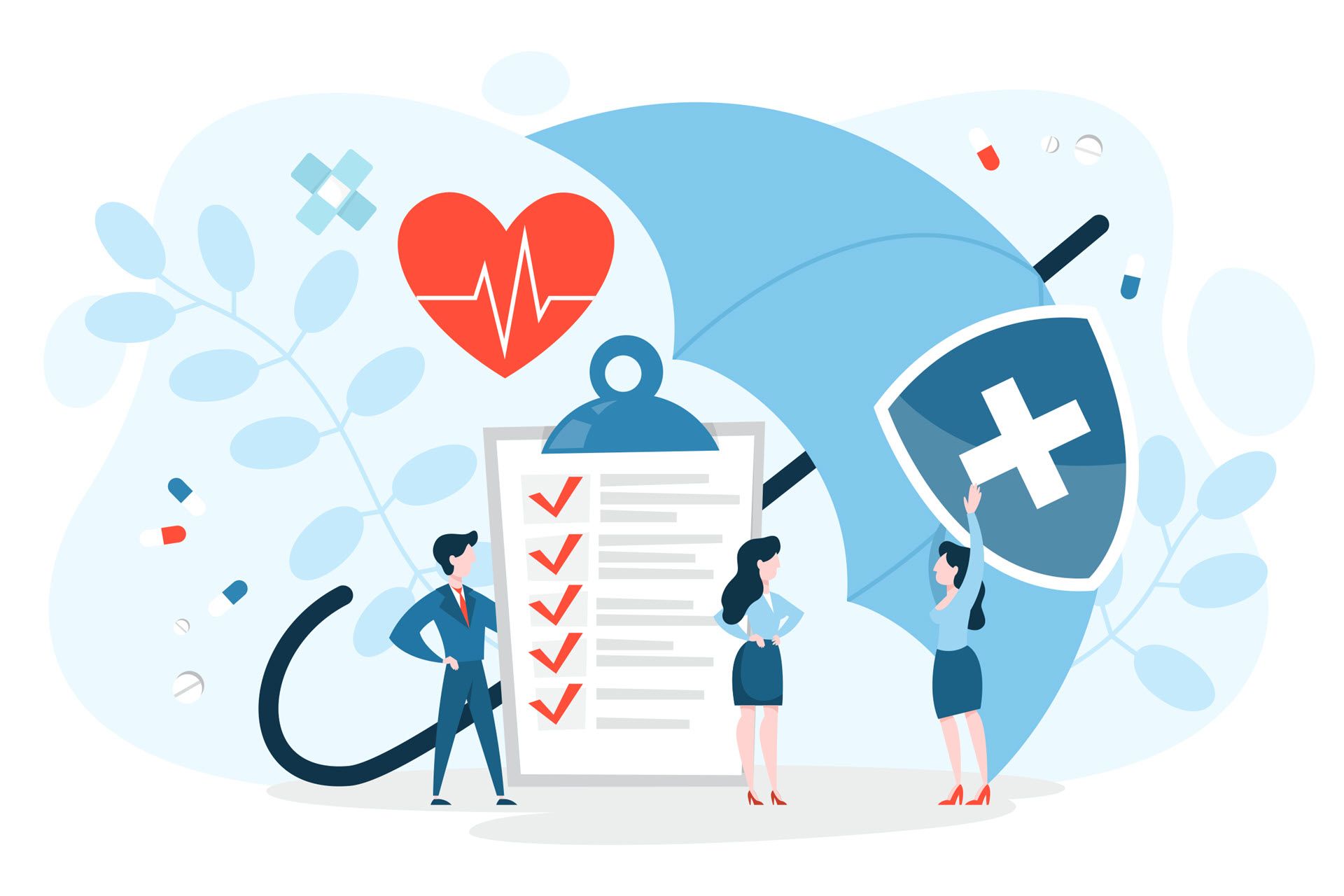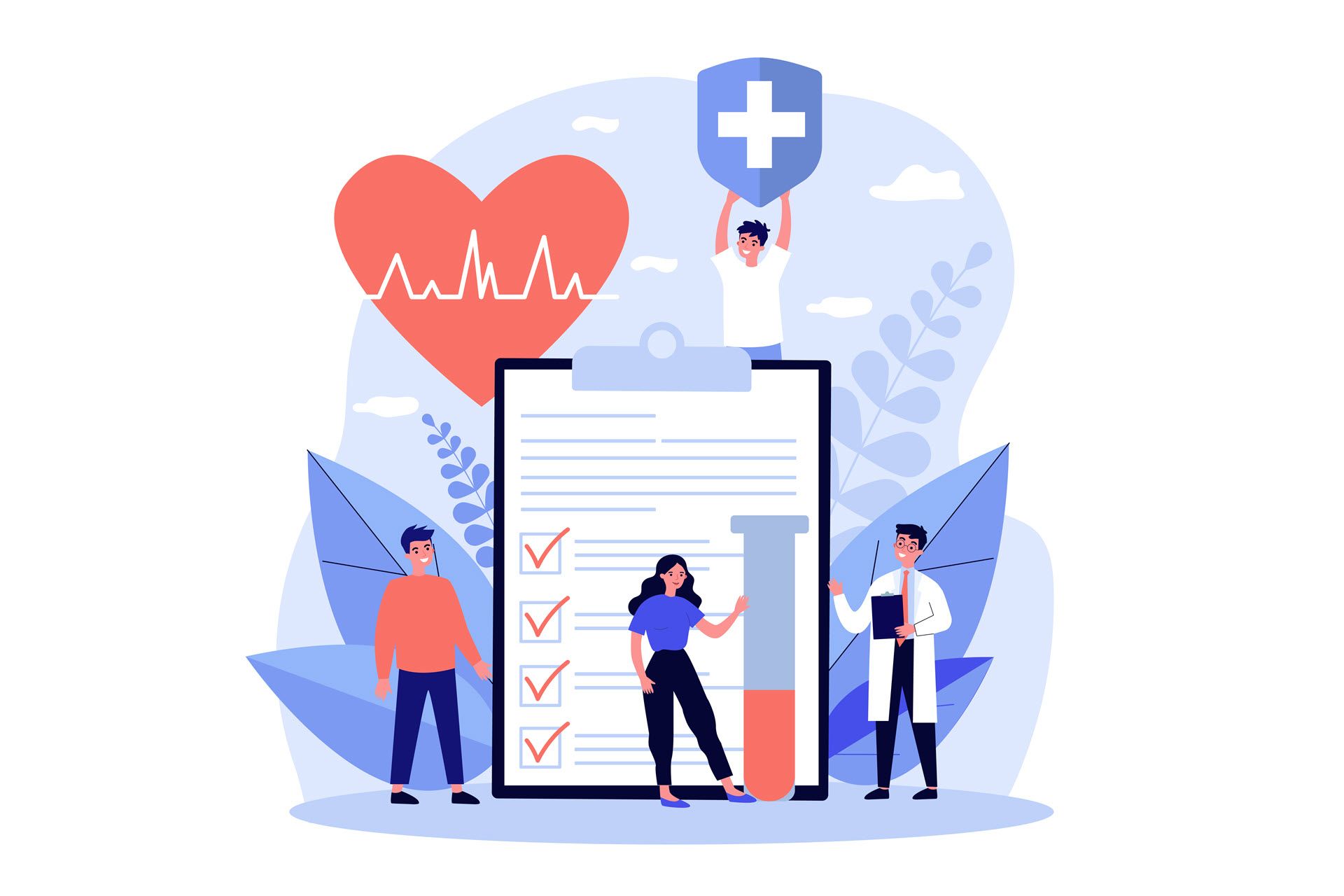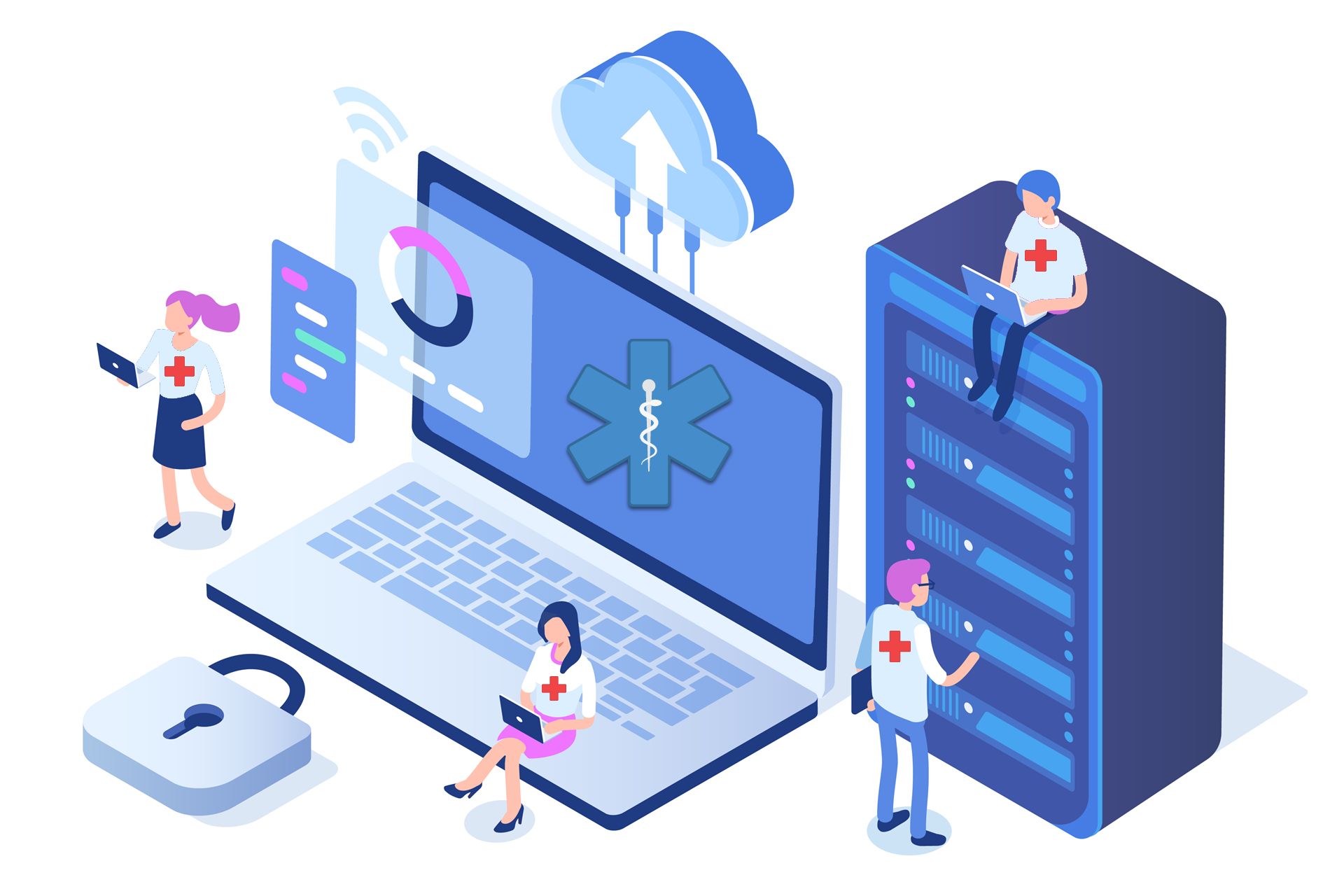Discovering a HIPAA violation in the workplace is a challenging situation, leaving the person who discovered the violation wondering whether they should report the breach and what the consequences might be if they choose not to.
Firstly, it is necessary to know that HIPAA includes specific provisions to protect whistleblowers who report patient privacy violations. Secondly, reporting breaches is ethically responsible and legally mandated under the Health Insurance Portability and Accountability Act (HIPAA).
This article offers a comprehensive guide on reporting HIPAA violations in the workplace and the legal implications and process of documenting a suspected violation.
What Is a HIPAA Violation in the Workplace?
A HIPAA violation is any act or failure to act that violates the privacy, confidentiality, and integrity of sensitive patient data. In essence, a HIPAA violation occurs when unauthorized individuals gain access to protected health information (PHI) due to inadequate security measures and safeguards.
Common types of HIPAA violations in the workplace include:
- Unauthorized access to a patient’s medical records out of curiosity, personal gain, or any other non-work-related purpose.
- A lost or stolen laptop, smartphone, or other portable device that potentially exposes PHI to unauthorized individuals.
- Sharing PHI with individuals not involved in the patient’s care or treatment, such as discussing patient details in public or disclosing information to friends or family members without the patient’s consent.
- Inadequate security measures to protect PHI, such as leaving sensitive documents unattended in public areas or not properly securing electronic systems with passwords or encryption.
- Discarding PHI without taking appropriate measures to ensure its proper destruction, such as failing to shred paper documents or to securely wipe data from electronic devices.
- Not providing employees with proper HIPAA training and education, leading to a lack of awareness about privacy and security requirements and increasing the risk of unintentional violations.
- Failing to report a known or suspected data breach involving PHI 60 days after the discovery of the breach, as required by HIPAA regulations.
The Department of Health and Human Services Office of Civil Rights (OCR), the governing body for HIPAA regulations, often takes months or even years to resolve cases of PHI breaches. In some instances, they discover further wrongdoings during their investigations.
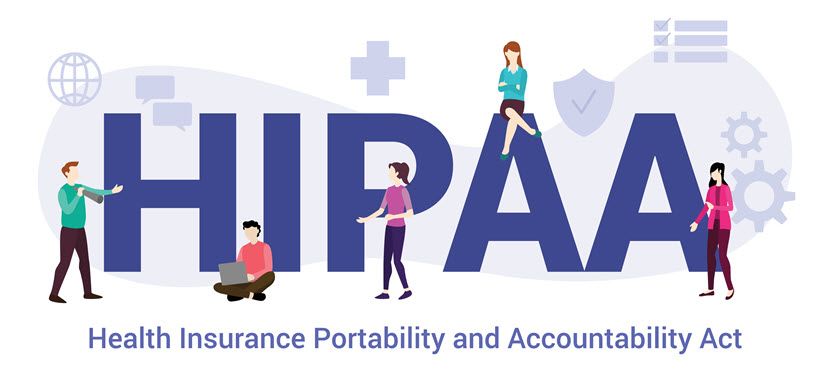
Examples of HIPAA Violations in the Workplace
Let’s look at some real-life examples:
Britney Spears and Michael Jackson Medical Files
HIPAA violations linked to celebrities are common due to the combination of fame, media attention, and curiosity surrounding their personal lives.
When Britney Spears gave birth in 2005 and was admitted to a psychiatric unit in 2008, UCLA employees disclosed her medical records, resulting in disciplinary actions and terminations.
Similarly, after Michael Jackson died in 2009, unauthorized staff members at Ronald Reagan UCLA Medical Center accessed his death certificate over 300 times, leading to significant fines for the UCLA Health system in 2011.
HIPAA Violations on Social Media
HIPAA violations involving social media have become more prevalent in recent years.
In November 2019, an investigation exposed a Facebook group of medical emergency responders who had uploaded over 23,000 videos and pictures they took while on the job. Needless to say, sharing graphic content and discussing specific cases on social media breaches HIPAA's privacy and confidentiality requirements. The Facebook group's owner, a paramedic at Grady Hospital, was fired over the incident.
Another case in 2017 involved a medical technician who posted on Facebook about a car crash victim, stating, “Should have worn her seatbelt.” While seemingly vague, the comment contained enough clues to identify the patient, resulting in the immediate termination of the technician for a HIPAA violation.
Systemic Failures
In Florida, a health system faced a $2.15 million civil penalty for various HIPAA breaches, including unauthorized disclosure of PHI, failure to conduct proper risk analysis, irregular information system activity reviews, and intentional unauthorized access to patient data for illicit purposes. Furthermore, the system failed to report the breach properly, incurring additional penalties.
In Maryland, two hospitals violated patients’ rights by refusing to provide medical records, resulting in a $4.3 million fine for “willful neglect.”
A New York state health plan experienced a major PHI breach in 2015, affecting 9.4 million individuals, leading to an OCR investigation that lasted seven years and revealed multiple HIPAA violations. The company agreed to a $5.1 million settlement.
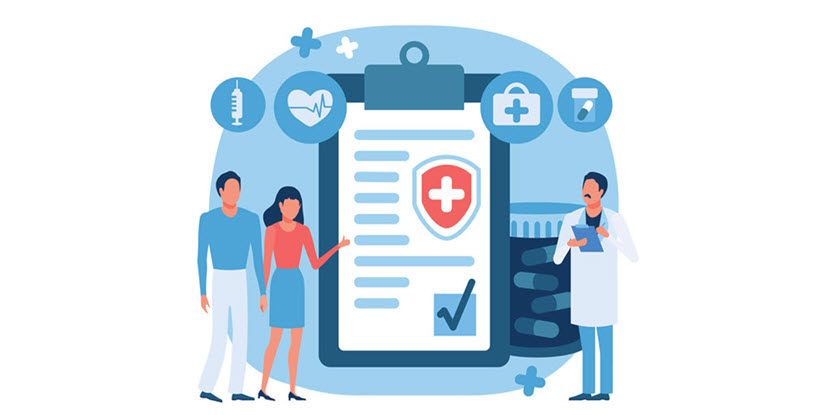
As the primary means of control, the Office for Civil Rights conducts thorough audits to assess HIPAA compliance. To be prepared, read our article on HIPAA compliance audits.
How to Report HIPAA Violations in the Workplace?
If you discover a HIPAA violation in the workplace, you should report the incident to your supervisor and the company’s HIPAA Privacy Officer. However, if your organization takes no visible action to address the issue, you can escalate the matter by filing an official complaint with the OCR through their Complaint Portal.
The OCR investigates all complaints related to potential HIPAA violations but prefers the complainant to provide their name and contact details. While it is possible submit an anonymous complaint, doing so is less likely to result in further action, as the OCR has limited resources to pursue leads.
Although you may be hesitant to share your contact information, the law is on your side, and the OCR protects whistleblowers.
The process for submitting HIPAA complaints is largely similar for non-employees. They should also report the HIPAA violation to the offending organization’s Privacy Officer and escalate to the OCR or state Attorney General if no corrective action is taken.
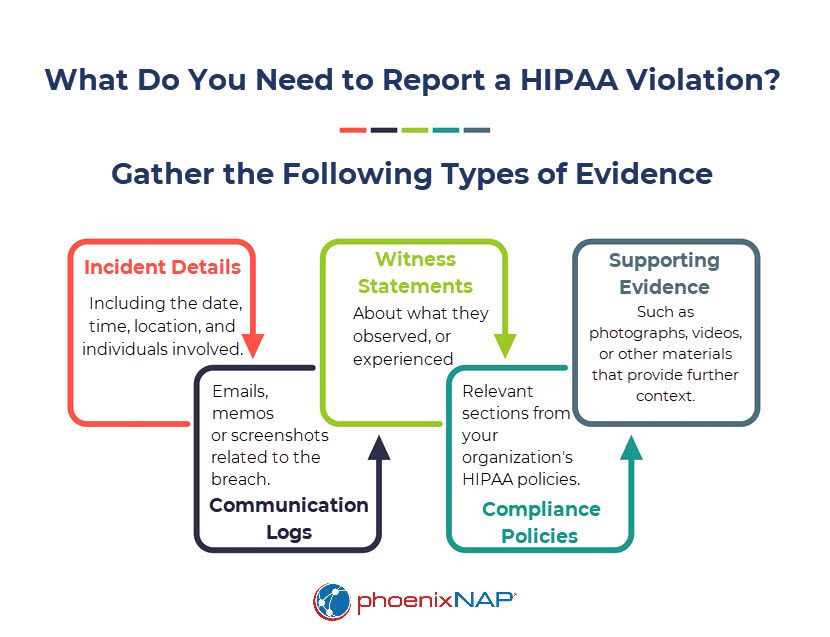
Is It Necessary to Report a HIPAA Violation in the Workplace?
If you or your colleagues violate HIPAA rules, you must report the violation immediately upon discovery and within a maximum of 60 days. Failure to do so can have legal repercussions, including fines, potential disciplinary actions, and the removal of licenses. Not reporting a violation can also damage your reputation and credibility among colleagues, employers, and patients.
On the other hand, by reporting the breach, you enable your organization to mitigate potential harm and prevent similar incidents from happening in the future. Being proactive also reduces the potential penalties imposed by the OCR as it shows a commitment to upholding patient privacy.
What Is the Cost of HIPAA Violations in the Workplace?
Non-compliance with HIPAA has significant financial and legal consequences. HIPAA fines and penalties range from $127 to nearly $2 million, while intentional or exceptionally reckless violations can result in up to 10 years of imprisonment. In rare cases, the OCR imposes both civil fines and criminal charges. Victims can also file class action lawsuits against the responsible entity or associate.
Furthermore, PHI breaches harm the violator’s reputation, especially if the incident attracts media attention. Negative publicity erodes trust among patients and other stakeholders, leading to long-lasting consequences.
HIPAA fines are typically directed towards businesses, specifically covered entities, and business associates. At the same time, individuals within those organizations who have played a role in the violation may face disciplinary actions or legal liabilities. These individuals could include employees, officers, or executives who were directly involved in the violation or were aware of it but failed to take appropriate action.
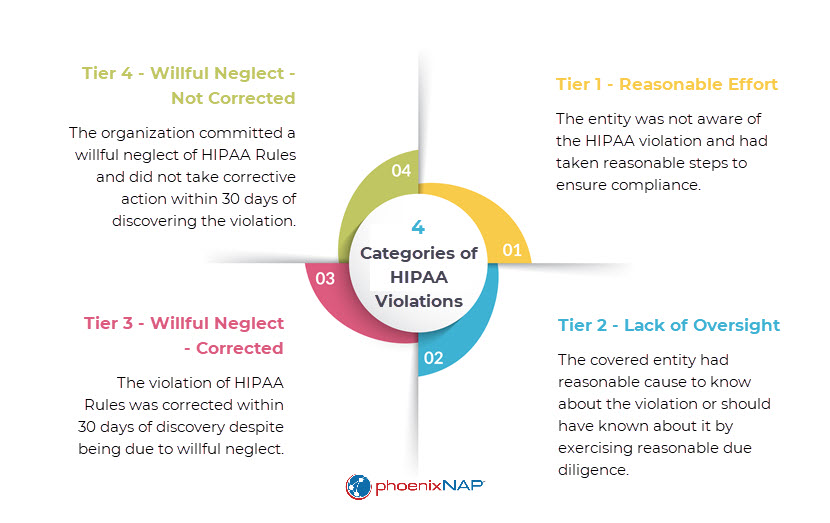
How to Avoid HIPAA Violations in the Workplace
HIPAA requires organizations to provide the training and resources needed to avoid violations. If you unintentionally violate HIPAA due to a lack of resources or training, the responsibility and potential penalties lie with your employer, not you.
If you feel that you are not receiving adequate training or resources, discuss the issue with your employer and privacy officer or report it to the OCR, as the failure to provide training and resources violates HIPAA.
To avoid violating HIPAA in the workplace, follow these guidelines:
1. Respect Patient Privacy
Always maintain strict confidentiality when handling patient information. Avoid discussing details in public and on social media or with unauthorized individuals.
2. Secure Electronic Devices
Ensure that any electronic devices, such as computers, laptops, or mobile phones, are protected with strong passwords and encryption. Never leave them unattended or share your login credentials.
3. Use Secure Communication Channels
To protect the privacy of sensitive data, use email security best practices and secure channels when communicating PHI.
Curious about whether Gmail meets HIPAA requirements? Our latest article describes how to make Gmail HIPAA compliant and able to handle protected health information.
4. Follow Access Control Measures
Only access patient data necessary for your job responsibilities. Avoid browsing patient records out of curiosity and immediately report any suspicious activities or potential breaches.
5. Recognize and Prevent Common Cyber-Attacks
Learn how to identify and prevent common types of cyber-attacks, such as phishing attempts, social engineering schemes, and ransomware incidents.
If you're interested in finding effective ways to protect your organization, read our in-depth article on ransomware in healthcare.
6. Stay Updated with HIPAA Regulations
Continuously educate yourself on HIPAA regulations and any updates or changes. Attend training sessions and stay informed about your organization’s HIPAA policies and procedures.
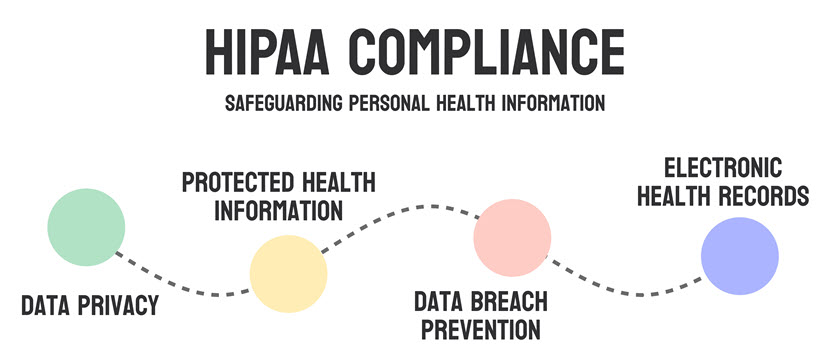
Conclusion
If you encounter a HIPAA violation in the workplace, it is crucial to approach it with utmost seriousness, considering the potential consequences for you and your employer. Quickly reporting any suspected or witnessed breach of PHI is vital to mitigating the potential fallout.
Notify your immediate supervisor and the organization's privacy officer about the breach. If the matter remains unresolved, consider escalating the case to the OCR. Details, including your name and position within the organization, strengthen your case.
While apprehensions about employer retaliation are understandable, know that whistleblower protections are built into HIPAA. By reporting violations in good faith, you not only fulfill your ethical and legal obligations but also contribute to upholding the integrity of the healthcare system and safeguarding patient privacy.
